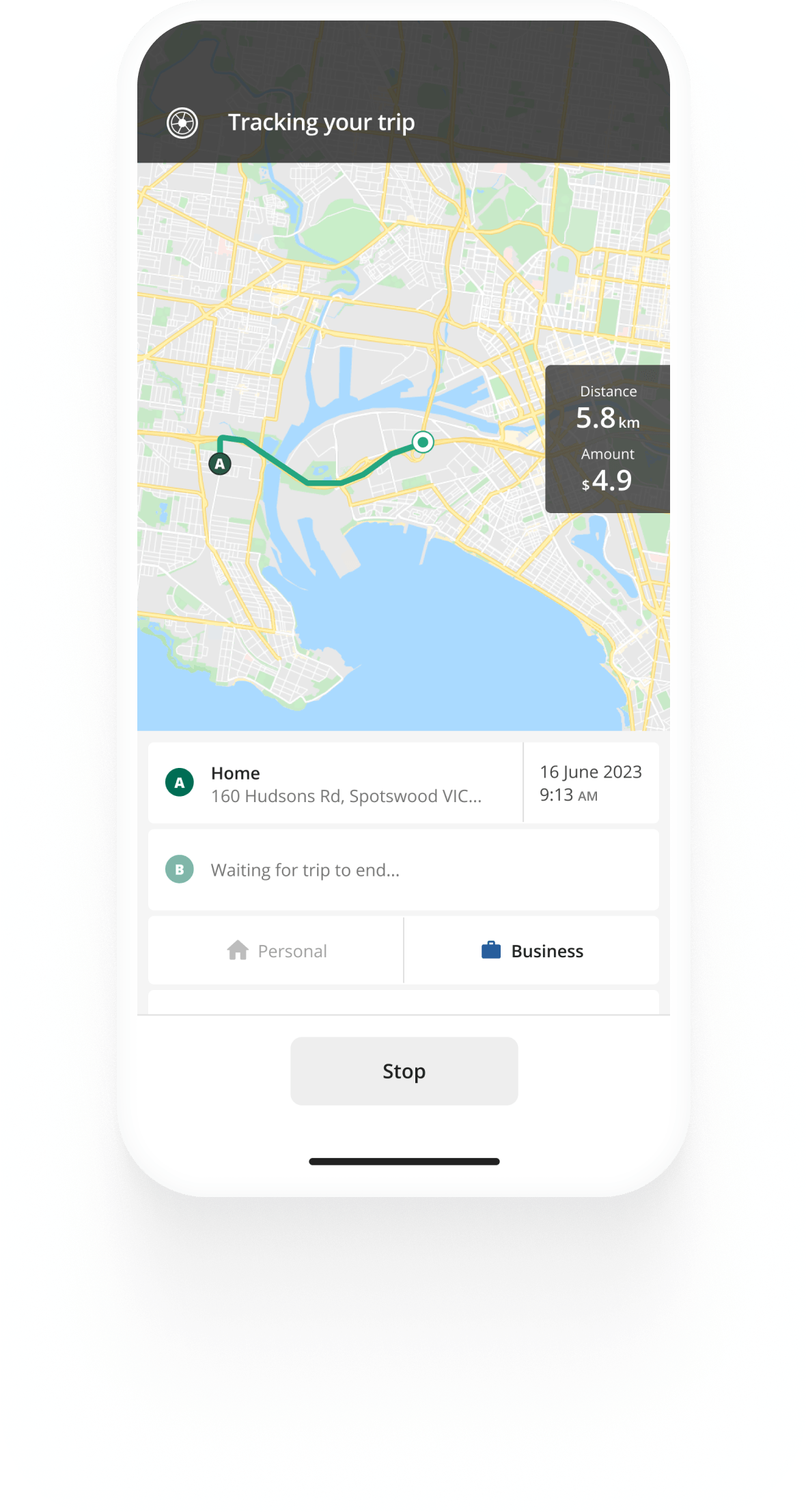Track mileage automatically
Get startedWhat are Business Expenses?
Any costs your business or sole practice has solely to run and be operational are considered business expenses. In Australia, you can claim most business expenses as deductions, alleviating your business’ tax burden.
There are two types of business expenses - operational (such as salaries and supplies) and capital (such as equipment, or other depreciating assets). You can claim operational expenses in the year you have them, and capital expenses - over a longer period of time.
The three most important things for a business expense to be eligible for tax claim are:
- The expense must be solely for business purposes
- If the expense is for a mix of business and personal purposes, you can claim only the business part of the expense
- You must substantiate your claim by keeping records of your business expenses
What can be claimed as business expenses
As mentioned above, you can claim most business expenses at tax time, so long as they are substantiated by records.
Any fixed expenses such as rent, utilities and insurance, employee salaries as well as most variable expenses such as employee reimbursements for eligible expenses, commissions and bonuses, supplies, business travel and business-related car expenses, company vehicles, maintenance of equipment, advertising and so on are deductible.


Kilometre tracking made easy
Trusted by millions of drivers
Automate your logbook Automate your logbook

Automatic mileage tracking and ATO-compliant reporting.
Get started for free Get started for freeBusiness expenses that cannot be claimed
There are certain expenses when you own a business that you cannot claim. These include:
- Any private expenses that have no connection to your business or performing your duties
- A purchase’s GST, if you can claim it as a GST credit on your business activity statement
- Expenses related to entertainment
- Gifts not related to the business earnings
- Traffic fines
- Any expenses related to earning an unassessable income. See a list of income amounts that are not assessable according to the ATO.
Claiming business expense deductions
In order to claim business expense deductions, you will need to keep detailed records of all of them throughout the year in the form of receipts and invoices. Estimating your business expenses is a no-no. At tax time, add up all eligible business expenses from your receipts - this is the sum you will be able to claim.
Depending on the type of business, you can claim business expenses on different tax return forms.
As a sole trader, you can claim expenses on your personal tax return.
If you are in a partnership, you will have to fill out the partnership tax return, and if you are a part of a trust, use the trust tax return.
Finally, if you have a company, claim business expenses on the company tax return.
FAQ

Tired of logging mileage by hand?
Effortless. ATO-compliant. Liberating.
Related posts
ATO Mileage Guide
Latest update: 23 June 2025 - 5 min read
Learn about the rules of reimbursing employees for their car expenses or deducting expenses as an employee or self-employed individual.
Driversnote vs GOFAR
Latest update: 2 February 2026 - 10 min read
Compare Driversnote and GOFAR in 2026. See which logbook app is best for ATO compliance, ease of use, privacy, and everyday driving needs.
Work-Related Travel Expenses for Employees
Latest update: 16 January 2026 - 2 min read
Learn about the ATO rules on work-related travel expenses and see if they are reimbursable or deductible at tax time in Australia.


